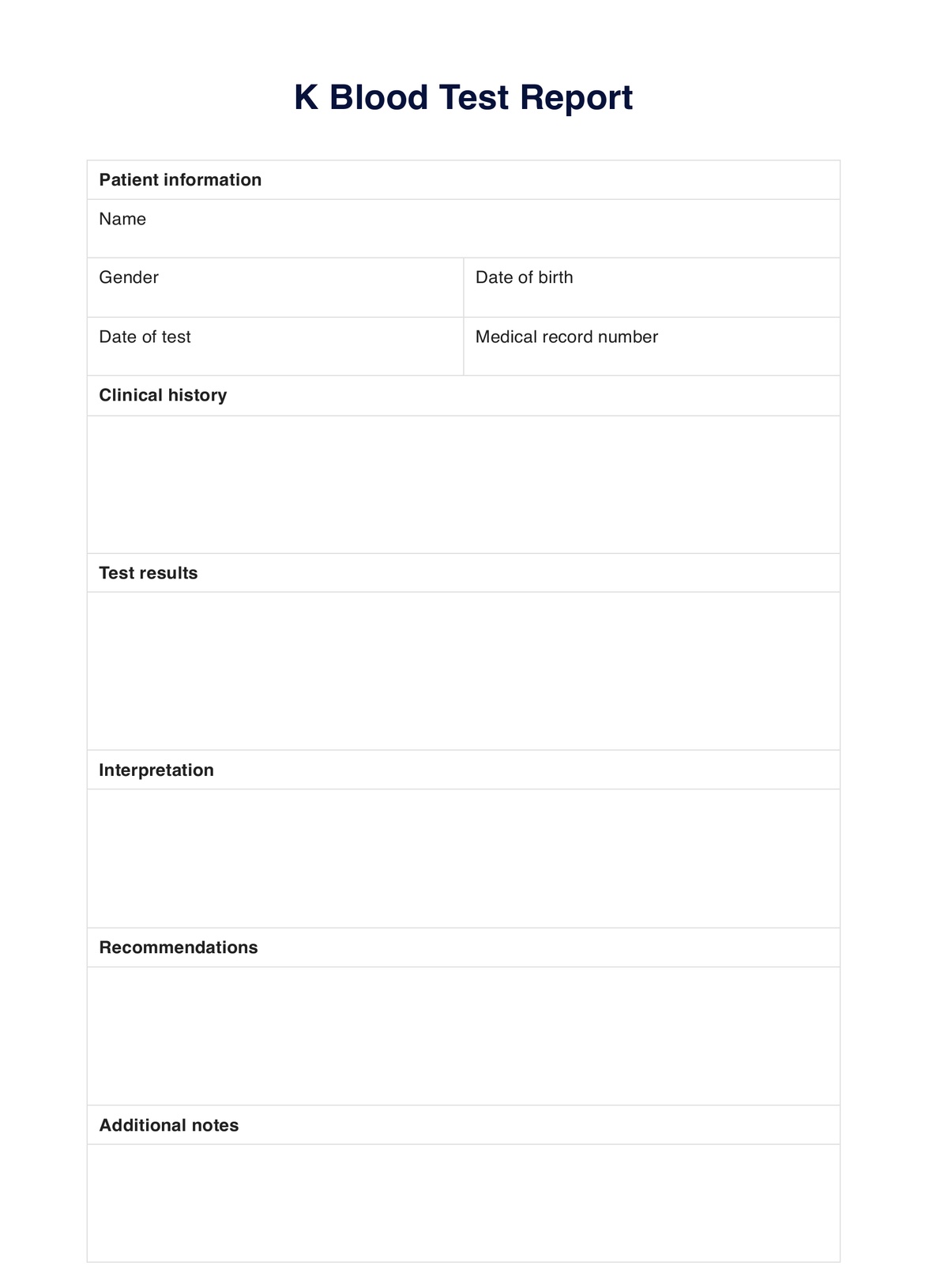Primary care physicians, nephrologists, cardiologists, or other healthcare professionals may request a K Blood Test to assess potassium levels and overall health.

K Blood
Learn about the importance of the K Blood Test and how to interpret results. Access a free template and example for your convenience.
K Blood Template
Commonly asked questions
K Blood Tests are typically used when there is a suspicion of potassium imbalances, kidney problems, heart rhythm issues, or other conditions related to potassium levels. They can also be part of routine health assessments for specific patient populations.
The test usually takes only a few minutes, but the process may take up to an hour, considering factors like sample collection and processing time. Results are generally available within a few days.
EHR and practice management software
Get started for free
*No credit card required
Free
$0/usd
Unlimited clients
Telehealth
1GB of storage
Client portal text
Automated billing and online payments











